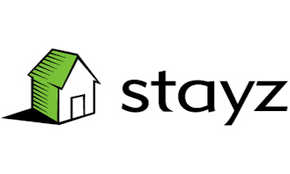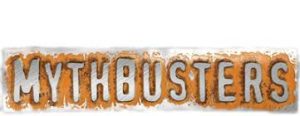Following on from our name change, please don’t forget to update our email addresses from @bmlpartners.com.au to @msba.com.au.
All other contact details remain the same.
Tax ‘Safe Harbour’ for Inherited Property
In some cases, these conditions require the inherited property to be sold within two years of the date of death to qualify for the exemption, although the Commissioner has the discretion to extend this period in some situations. To simplify the tax requirements for beneficiaries (and executors) and ensure that they don’t have the threat of a large tax bill hanging over their head, the ATO has outlined a safe harbour for inherited property.
Whilst we are in the busy months of tax lodgements, we thought it would be fun to share the ATO’s list of top 10 tax myths, aimed at individual taxpayers.
Myth #1: Everyone can automatically claim $150 for clothing and laundry, 5000 kilometres for car related expenses, or $300 for work-related expenses, even if they didn’t spend the money
Fact: the record-keeping exemptions provide relief from the need to keep receipts in certain circumstances. However, they are not an automatic entitlement or a “standard deduction” for everyone. While you don’t need receipts for claims under $300 for work related expenses, $150 for laundry and 5000 kilometres, you still must have spent the money, it must be related to earning your income, and you must be able to explain how you calculated your claim.
Myth #2: I don’t need a receipt, I can just use my bank or credit card statement
Fact: To claim a tax deduction you need to be able to show that you spent the money, what you spent it on, who the supplier was, and when the purchase occurred. Bank or credit card statements usually won’t contain this information. The only time you don’t need these details is if record-keeping exceptions apply.
Myth #3: I can claim makeup that contains sunscreen if I work outside
Fact: We all like to look good but cosmetics are usually a private expense and the addition of sun protection does not make it tax deductible. However, it may be deductible if the primary purpose of the product is sunscreen (i.e.: it has a high SPF rating), the cosmetic component is incidental, and you were required to wear it because you work outdoors in the sun.
Myth #4: I can claim my gym membership because I need to be fit for work.
Fact: While you might like to keep fit, there are only a very small number of people who can claim gym memberships, such as special operations in the Australian Defence Force. To be eligible, your job would have to depend on you maintaining a very high level of fitness, for which you are regularly tested.
Myth #5: I can claim all my travel expenses if I add a conference or a few days’ work to my holiday
Fact: If you decide to add a conference or some work to your holiday, or a holiday to your work trip, you must apportion the travel expenses between the private and work-related components.
Myth #6: I can claim my work clothes because my boss told me to wear a certain colour
Fact: Unless your clothing is a uniform that is unique and distinct to your employer, or protective or occupation-specific clothing that you were required to wear to earn your income you, won’t be able to claim it. Plain clothes, like black pants, are not deductible even if your boss told you to wear them.
Myth #7: I can claim my whole Netflix or Foxtel subscription because I need to keep up to date for work
Fact: Unless you only use your subscriptions for work purposes, you will have to apportion the cost between business and private usage, and only claim the work-related portion of your expenses. You will also need to be able to show a strong connection between earning your income and the subscription.
Myth #8: I can claim home-to-work travel because I need to get to work to earn my income
Fact: for most of us, home to work travel is private since your boss doesn’t pay you until you get to work. There are limited circumstances where someone who has to transport bulky equipment can make a claim.
Myth #9: I’ve got a capped phone plan, so I can claim both business and private phone calls
Fact: Unless you only use your phone for work, you will have to apportion the cost between business and private usage and only claim the work-related portion of your expenses.
Myth #10: If I use an agent, they will take responsibility for my claims
Fact: Even if you use a tax agent, you are ultimately responsible for ensuring the information in your return, including the deductions you claim, is correct. You cannot transfer that responsibility to your agent so make sure you give them complete and accurate information.



The Australian Taxation Office (ATO) has announced a new data-matching program targeting taxpayers earning income from the exploding popularity of short-term rentals available on platforms like AirBNB and Stayz.
Data matching between online platform sharing sites and financial institutions, has allowed the ATO to target 190,000 individuals to make sure they have not failed to declare or under declared rental income or have overclaimed deductions. And yes, the ATO can potentially check what is coming in and out of your bank account.
The ATO states that there is no such thing as a “rental hobby” so even a one-off rental needs to be declared.
But it’s not just the income the ATO are concerned about; deductions claimed are also in the spotlight. The ATO is concerned that some landlords are not only overclaiming – for example, claiming deductions for the whole house when only one room is rented out – but claiming deductions when the accommodation is not genuinely available for rent.
If you do offer short term rental accommodation, there are a few tax ‘ground rules’:
· Keep records (particularly if you are claiming deductions)
· Any income from rentals need to be declared – even if it is a one-off rental
· If you rent the property for income producing purposes, you can claim a deduction for the costs of earning that income
· Any deduction claimed needs to be in proportion to the length of time the accommodation was rented, and in proportion to what was rented. That is, if you rent one room, you can only claim deductions for the expenses incurred relating to that portion of the accommodation for the time it was available.
· Deductions are limited to the income earned where the accommodation was provided below market rates, for example to family and friends.
· This activity might impact on your ability to access the main residence CGT exemption on the sale of the property.



